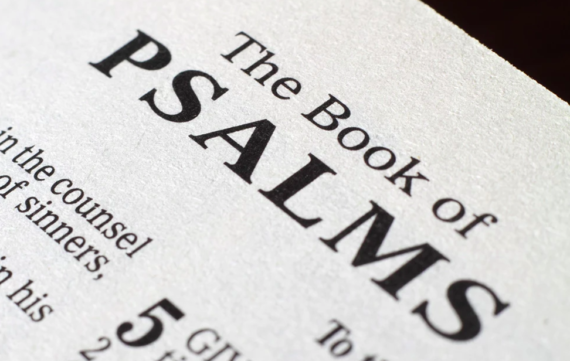This is the last psalm in book three of the psalter.Book three is perhaps the most difficult of the five books. It deals with dilemma.It opens with the question of why the wicked prosper (73) and asks why God has abandoned his people (74).It closes with similar themes in 88 and 89.
Most lament psalms start with the problem and then move on to praise.Last week we noticed that psalm 88 is an exception, it never gets past the lament, ending with the word “darkness.”Psalm 89 is an inverted lament. It begins with praise of the Lord’s creative power and his covenant promise. Then it moves on to lament the current condition of David’s house.
Clearly this psalm was written well after the time of David. Evidently the king has recently suffered defeat (38-45). It also seems that the king in question was young (45).Several scholars suggest that Jehoiachin may be in view. Or Josiah’s death might have called forth such a lament.






Though the psalm does not reach a conclusion, it ends on a note of praise. It ends on a note of “hallelujah, anyway.”Many of us are aware of our limited perspective, and therefore of the need to trust God and say, “hallelujah, anyway.” But it is not always easy to do.Perhaps we could learn something from how the writer approaches his situation.
Review of promises
In the long opening section, he reviews the Lord’s covenant promise (1-37).God is able to deliver. He is creator and has all power (5-14).The Lord has made promises to David’s house. The promise was freely and unilaterally offered (cf 2 Sam 7:4-17). This is remembered in verses 20-22, 28-29, and especially in 30-37.
“If his children forsake my law and do not walk according to my rules, 31 if they violate my statutes and do not keep my commandments, 32 then I will punish their transgression with the rod and their iniquity with stripes, 33 but I will not remove from him my steadfast love or be false to my faithfulness. 34 I will not violate my covenant or alter the word that went forth from my lips. 35 Once for all I have sworn by my holiness; I will not lie to David. 36 His offspring shall endure forever, his throne as long as the sun before me. 37 Like the moon it shall be established forever, a faithful witness in the skies.”
Wrestling with the situation
The psalmist then wrestles with the current situation in verses 38-51.First he describes that situation (38-45).Then he asks the Lord why things are as they are and how long they will remain in this state (46-51).In doing so, the writer asks the Lord to remember his human frailty (47-48).He acknowledges that there may be cause for God’s anger at his people. The writer does not question the justice of that anger but asks how long it will continue (46).He is also clear that the current situation insults the Lord, not just the worshipper (50-51). This is often a central aspect of biblical prayer – the appeal to the honour of the Lord’s name, rather than a claim of innocence on the part of the ones offering the prayer. Moses’ prayer after the people refused to enter the promised land is typical (Num 14:13-19).
Concludes with praise
The psalmist concludes in praise. “Blessed be the Lord forever! Amen and Amen” (52).Praise, in this situation, and without a word of promise having been spoken, expresses a settled confidence that the Lord will do the right thing.And he was doing the right thing, even though it was hard to see when Josiah died or when they were taken captive, or at many other points along the way. The Lord kept his promise to David, although not in the way they expected.
If Jesus is not the son of David and king of God’s people, then it is difficult to avoid the conclusion that God has not kept his promise to David. Perhaps that is part of why modern Judaism has become more a culture than a religion.
What should we learn from this psalm?
We should learn that when it seems that the Lord is not fulfilling his promises, that may be the time that he is doing something for us that is beyond our understanding.We should therefore review his promises and his power. We should present our situation to him, and trust that he is once again up to something greater than we can understand. We should say, “Blessed be the Lord forever!” For as he kept his promise of a continuing dynasty for David, in an unexpected and unheard-of manner, so he will keep all his promises– in Christ (2 Cor 1:20).

